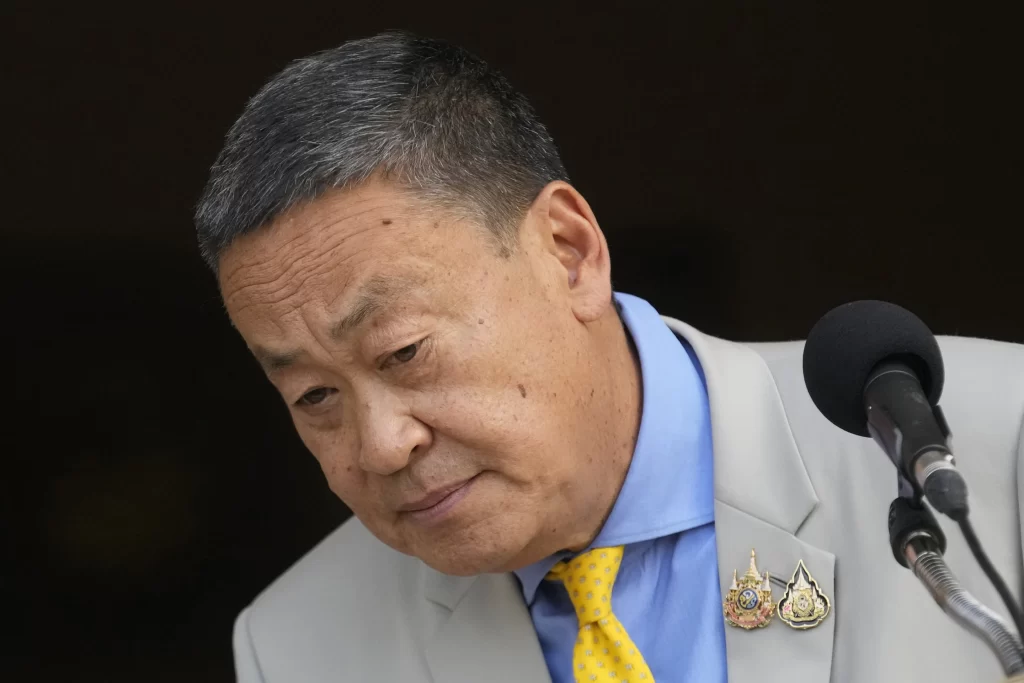BANGKOK, Thailand – In a landmark ruling, Thailand’s Constitutional Court has removed Prime Minister Srettha Thavisin from office following an ethical violation. The court’s decision, announced on Wednesday, has further shaken Thailand’s political landscape, which was already facing uncertainty after the dissolution of the country’s main opposition party just a week prior.

The case centers on Srettha’s controversial appointment of a Cabinet member who had previously been jailed on charges related to an alleged attempt to bribe a government official. The Constitutional Court ruled 5-4 against Srettha, finding that his decision to appoint the individual violated ethical standards. As a result, Srettha was immediately removed from his position as prime minister.
The court’s decision leaves Thailand without a clear leadership at a critical time. The Cabinet will remain in place on a caretaker basis until Parliament approves a new prime minister. A vote in Parliament was scheduled for Friday, but the process of electing a new leader has no set deadline. In an even more uncertain scenario, the caretaker Cabinet could choose to dissolve Parliament entirely, prompting a new election.

Speaking shortly after the ruling, Srettha expressed his disappointment but noted that he respects the court’s decision. “I’m sorry that I’d be considered as a prime minister who’s unethical, but I’d like to insist that I believe that is not who I am,” Srettha said in a brief statement, emphasizing his commitment to upholding ethical standards during his short tenure in office, which lasted less than a year.
Phumtham Wechayachai, a senior figure within Srettha’s Pheu Thai Party and first deputy prime minister, is expected to take over as acting prime minister while Parliament deliberates on a more permanent replacement.
This political upheaval follows another dramatic event last week when the Constitutional Court dissolved the progressive Move Forward Party (MFP). The court ruled that MFP had violated Thailand’s constitution by attempting to amend a law prohibiting defamation of the country’s royal family. The disbanded party has since regrouped under the name The People’s Party.

As Thailand grapples with these rapid political developments, the country’s future remains unclear. The sudden removal of Srettha Thavisin has only heightened political tensions, and with no clear timetable for the appointment of a new leader, Thailand’s political landscape is likely to remain turbulent in the coming months.
Phumtham Wechayachai’s expected rise to the role of acting prime minister signals continuity within the Pheu Thai Party’s leadership, though the long-term direction of the government is uncertain. The Constitutional Court’s decision could also have broader implications for the balance of power between Thailand’s military-backed parties and pro-democracy movements, which have been in a power struggle for years.



